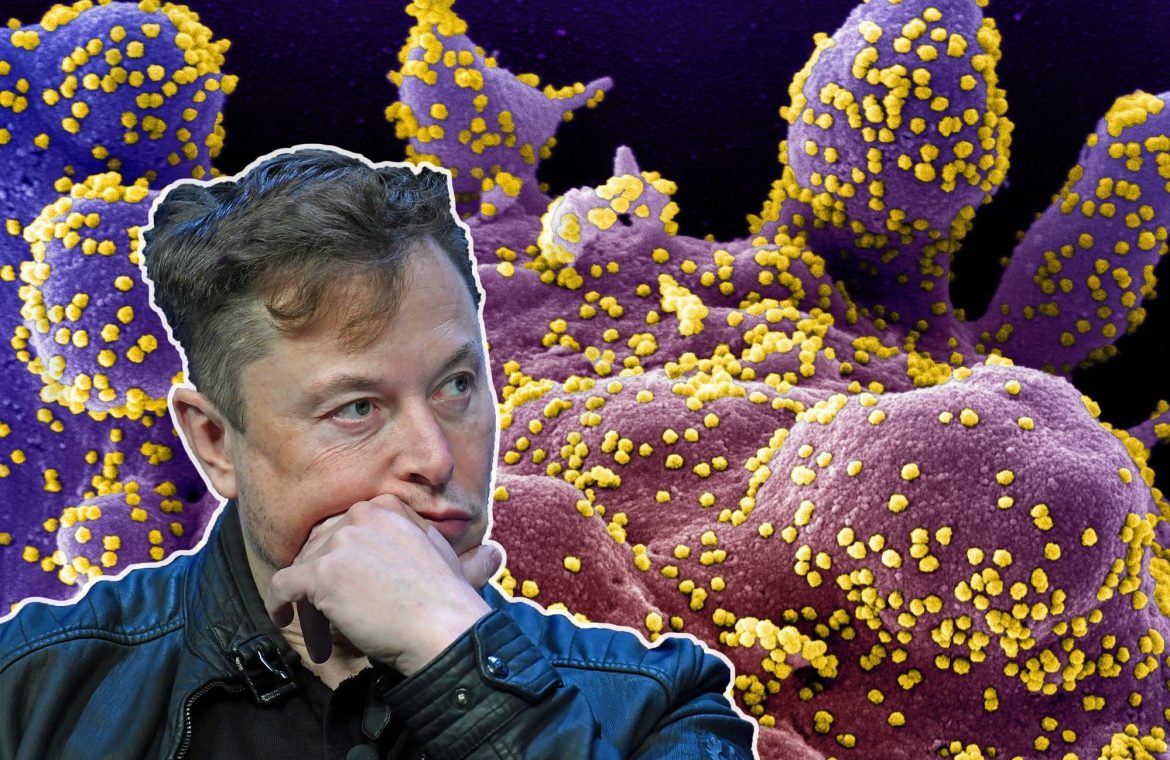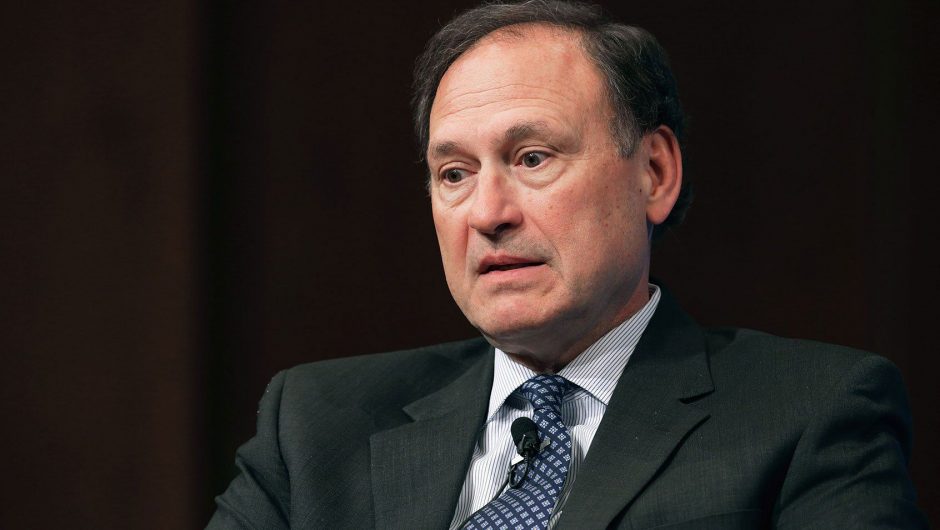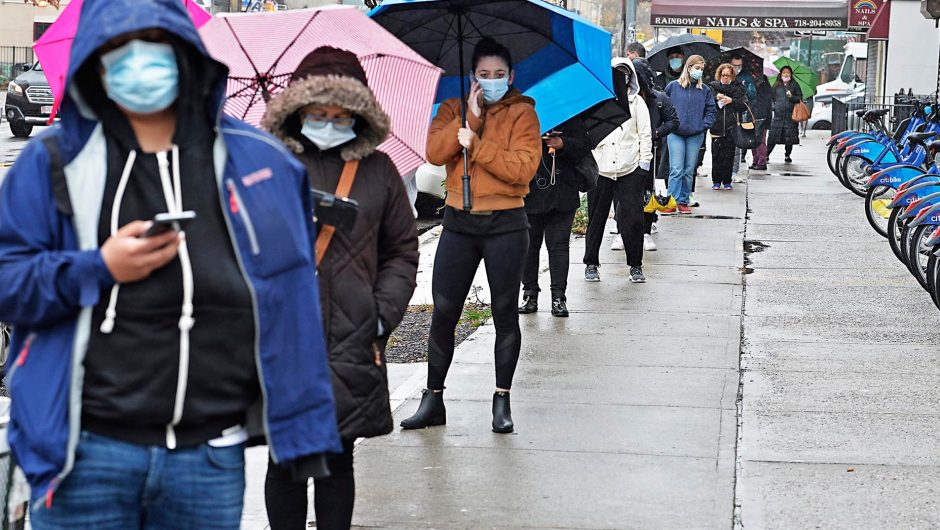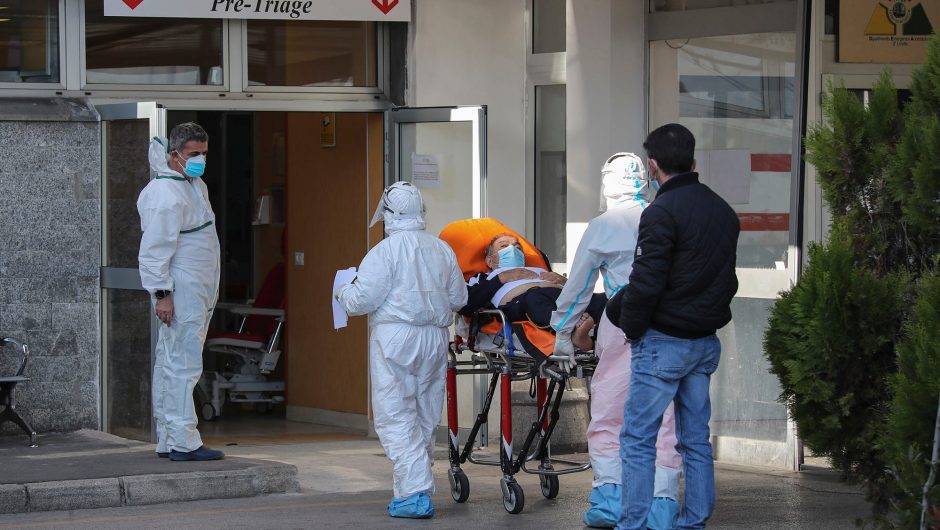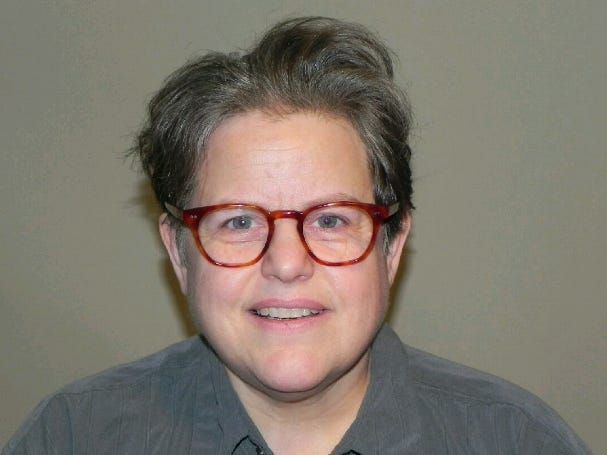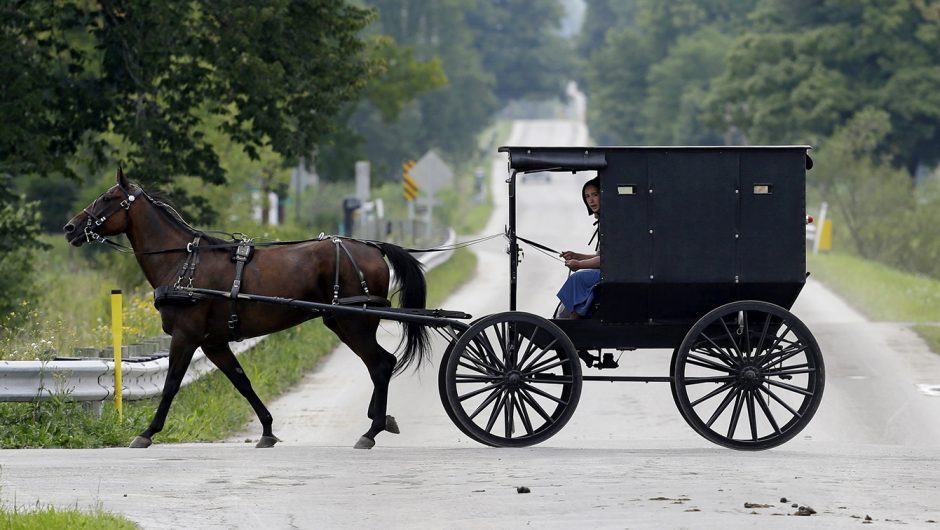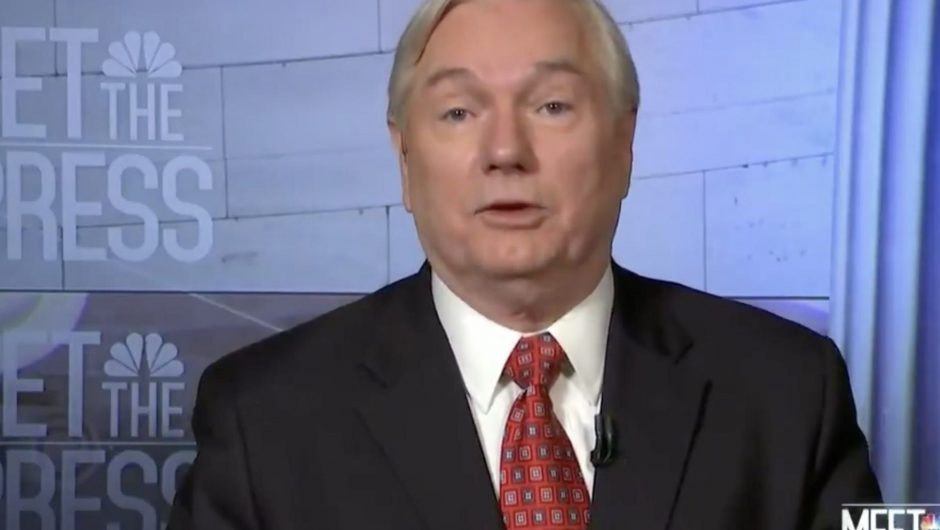Elon Musk, the CEO of Tesla and SpaceX, has criticized coronavirus shelter-in-place measures. Susan Walsh/AP; NIH; Photo illustration by Business Insider
Elon Musk said on Twitter that he tested positive for the coronavirus.
However, the rapid test Musk used is less reliable than other types. He got two positive and two negative results.
Still, his positive test will likely prevent Musk from attending the launch of SpaceX’s Crew-1 mission on Sunday, according to NASA’s rules.
Visit Business Insider’s homepage for more stories.
Elon Musk said on Twitter late Thursday evening that he’d tested positive for COVID-19 according to a rapid screening.
“Mild sniffles & cough & slight fever past few days,” Musk tweeted on Friday morning. “Right now, no symptoms, although I did take NyQuil.”
But Musk also noted that two of the same rapid tests done on the same day came back negative. A more precise diagnostic test is needed to confirm that he has the coronavirus, but the timing could not be worse.
SpaceX, the rocket company Musk founded in 2002, is scheduled to launch four NASA astronauts into orbit on Sunday. The flight to the International Space Station will be SpaceX’s first operational human spaceflight mission for NASA. The astronauts are slated to spend six months in space, which would also make the mission the longest spaceflight ever to launch from the US.
However, NASA protocols mean Musk most likely will not be allowed on the premises of Kennedy Space Center in Cape Canaveral, Florida, for the launch of the mission, called Crew-1. Liftoff is scheduled for 7:27 p.m. ET on Sunday; it was pushed back from Saturday evening due to weather.
“NASA and our commercial partners have a health stabilization plan in place,” Steve Stich, program manager for NASA’s Commercial Crew Program, said on a Friday press call. “If they’re compromised, that can jeopardize the mission.
“It doesn’t matter if you’re Elon Musk or Jim Bridenstine,” he continued, referencing the NASA Administrator. “If you have not met those protocols, or if any of those protocols have been compromised, then we’re not going to let you near the crew.”
Story continues
Stich added that the Crew-1 astronauts and anyone who’d be making contact with them prior to launch had begun a “soft quarantine” period 21 days before the launch date. During that period, team members reduced their movements and exposure to people outside their immediate families. Then 14 days before launch, the team went into a “hard quarantine” during which they were “totally isolated, and really watched closely by the docs,” Stich said.
SpaceX’s Crew Dragon spaceship sits atop a Falcon 9 rocket in preparation for the launch of Crew-1 at the Kennedy Space Center in Cape Canaveral, Florida, November 12, 2020. SpaceX
NASA rules for employees say that anyone with a fever, cough, or positive test result is supposed to “stay or return home and immediately” and be “symptom free” before asking a supervisor to return.
“Your supervisor will consult with the center medical staff to determine when it’s safe for you to return to work,” NASA’s rules say.
Antigen tests are less accurate than other tests
The test Musk used, BD’s Veritor System for Rapid Detection of SARS-CoV-2, looks for antigens: bits of protein on or in the virus. The test, according to BD’s website, provides results in 15 minutes.
By contrast, PCR tests do a more in-depth scouring for the virus’s genetic code, which is why it often takes days to get results. PCR tests “would be pretty close to 100% accurate” if performed correctly, Dr. Emily Volk, an assistant professor of pathology at the University of Texas-Health in San Antonio, told Healthline.
The problem with speeding up the process is that many antigen-based rapid COVID-19 tests may only pick up about 70% to 80% of infections, and they can produce false negatives. The Food and Drug Administration cautions that negative rapid-test results may need to be confirmed with a lab test, and the CDC says the tests are “generally less sensitive than viral tests.”
A sign at the regional headquarters of medical technology company Becton Dickinson (BD) in Silicon Valley, Menlo Park, California, November 14, 2017 Smith Collection/Gado/Getty Images
In clinical trials, BD’s test had a false-negativity rate of about 16% but delivered zero false positives, according to Fierce Biotech. But the company has since reported several false-positive results from tests done in nursing homes, according to The Wall Street Journal.
Musk tweeted that he was getting a PCR test, the results of which would come back within 24 hours.
‘Please isolate while you await the results’
Because of Musk’s positive result, he should isolate for the safety of others, according to Dr. Yukari Manabe, an infectious-disease researcher at Johns Hopkins University School of Medicine.
“No test is perfect. Since Mr. Musk was symptomatic and had equivocal results, he should seek a molecular test and self-isolate,” Manabe told Business Insider. “Also, he should be screened for other respiratory pathogens.”
Angie Rasmussen, a virologist at Columbia University, also emphasized on Twitter that Musk should stay away from others until his PCR test results come back.
“Given that you are symptomatic, please isolate while you await the results of your PCR test, which has a very low false positive rate,” Rasmussen tweeted on Friday.
SpaceX did not immediately respond to Business Insider’s query about whether Musk will attend the launch.
Bridenstine said NASA may not let Musk attend the launchNASA Administrator Jim Bridenstine answers questions during an event at NASA Headquarters in Washington, November 29, 2018. NASA/Bill Ingalls
In a press conference at Kennedy Space Center on Friday, NASA Administrator Jim Bridenstine did not directly confirm whether or not Musk would be allowed into Kennedy Space Center’s Launch Control building to observe the mission. He indicated, however, that Musk would most likely not be present.
“I’ll tell you, when somebody tests positive for COVID, here at the Kennedy Space Center and across NASA, it is our policy for that person to quarantine and self isolate,” he said. “So we anticipate that that will be taking place.”
Bridenstine added that the agency was “looking to SpaceX to do any contact tracing that is appropriate.”
Read the original article on Business Insider


